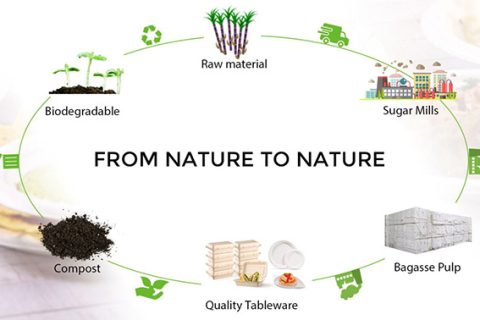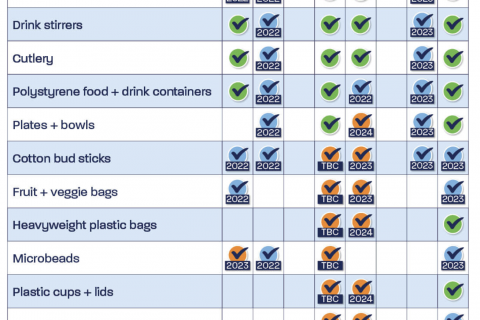Victoria has become the latest state in Austral to implement the nationwide mission to ban single-use plastic products. Effective 1 February 2023, the following products are banned from import and sale:
- Drinking straws
- Cutlery
- Plates
- Drink stirrers
- Cotton bud sticks
- Expanded polystyrene food service items
- Expanded polystyrene drink containers.
Australia has implemented a ban on single-use plastics in some areas to reduce plastic waste and protect the environment. It is important to note that the ban on single-use plastics is not a nationwide ban, and some states and territories have yet to implement such a ban. Nevertheless, the ban is a positive step towards reducing plastic waste and promoting sustainability in Australia. The ban has been implemented in all states and territories except Northern Territory and Tasmania. NT has proposed to start in 2025 while Tasmania has not set any commitments announced yet.
The ban aims to reduce the amount of plastic waste that ends up in the ocean and harms marine life, as well as reduce the environmental impact of plastic production. The ban is part of a larger effort to increase sustainability and protect the environment in Australia.
Single-use plastics are a major environmental problem because they are used only once and then discarded, often ending up in landfills, oceans, and other natural habitats. Here are some of the most significant problems caused by single-use plastics:
Litter: Single-use plastics are often littered, making the environment look unsightly and posing a risk to wildlife, as they can ingest or become entangled in plastic items.
Marine pollution: A significant amount of plastic waste ends up in oceans, where it can harm marine life, such as birds and fish, that mistake it for food or become entangled in it. This can lead to injury and death.
Microplastics: When single-use plastics break down, they become tiny particles known as microplastics. These particles are small enough to be ingested by marine life and enter the food chain, potentially causing harm to animals and even humans.
Carbon footprint: Plastic production is a major contributor to greenhouse gas emissions and the overall carbon footprint. The production of plastic also requires large amounts of oil and other non-renewable resources.
Landfill space: Single-use plastics can take hundreds of years to decompose in landfills, taking up valuable space and potentially releasing harmful chemicals into the environment.
Bioplastic was seen as a potential replacement for single-use plastics. This material was thought to break down naturally over time, reducing the environmental impact of waste.
However, the use of biodegradable plastics is not a straightforward solution to the problem of plastic waste. While biodegradable plastics can break down, they may not do so in all environments, such as landfills, where the conditions are not favourable for degradation. In these cases, biodegradable plastics can persist in the environment just like traditional petroleum-based plastics.
Additionally, some biodegradable plastics can release microplastics as they degrade, which can have similar negative effects on the environment as traditional plastic waste.
Single-use plastics are a major environmental problem that needs to be addressed. Reducing the use of these items and transitioning to more sustainable alternatives is essential to protect the environment and reduce the impact of plastic waste.
While biodegradable plastics may offer some benefits, they are not a silver bullet solution to the problem of plastic waste. It is important to consider the full life cycle of these materials, from production to disposal, when evaluating their environmental impact. The most effective way to reduce the impact of plastic waste is to reduce consumption and increase recycling. Additionally, transitioning to more sustainable materials, such as paper, glass, and metal, can provide a more long-term solution to the problem of plastic waste.
The alternative is sugarcane bagasse and wooden products that Leavesware Australia makes readily available in the market. Bagasse is waste products from sugar production while wooden products are made from responsibly managed forests.







Dear Precious Madam/Sir,
Happy Night…
I am working as a Teacher at a University in India
Your contribution in plastic pollution is really outstanding.
When I read through on your website, I got some most important points for my speech.
I express my hearty thanks to
Regards,
D. Ramamoorthy